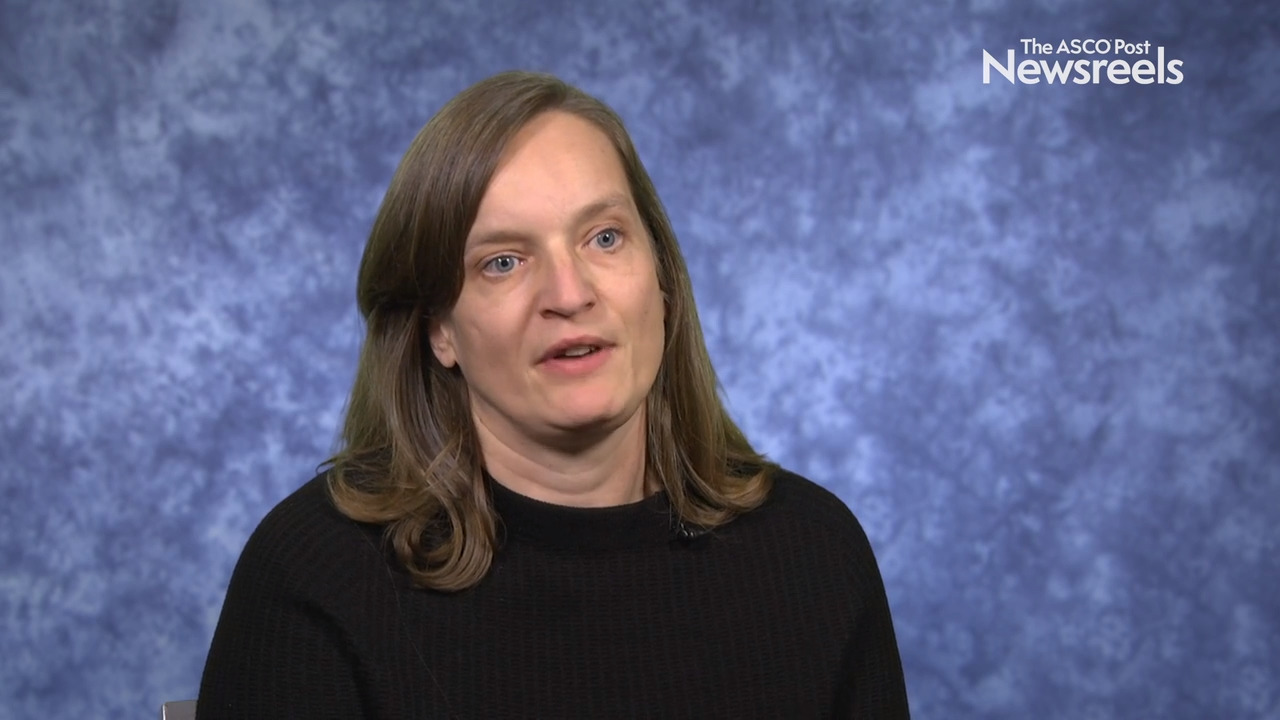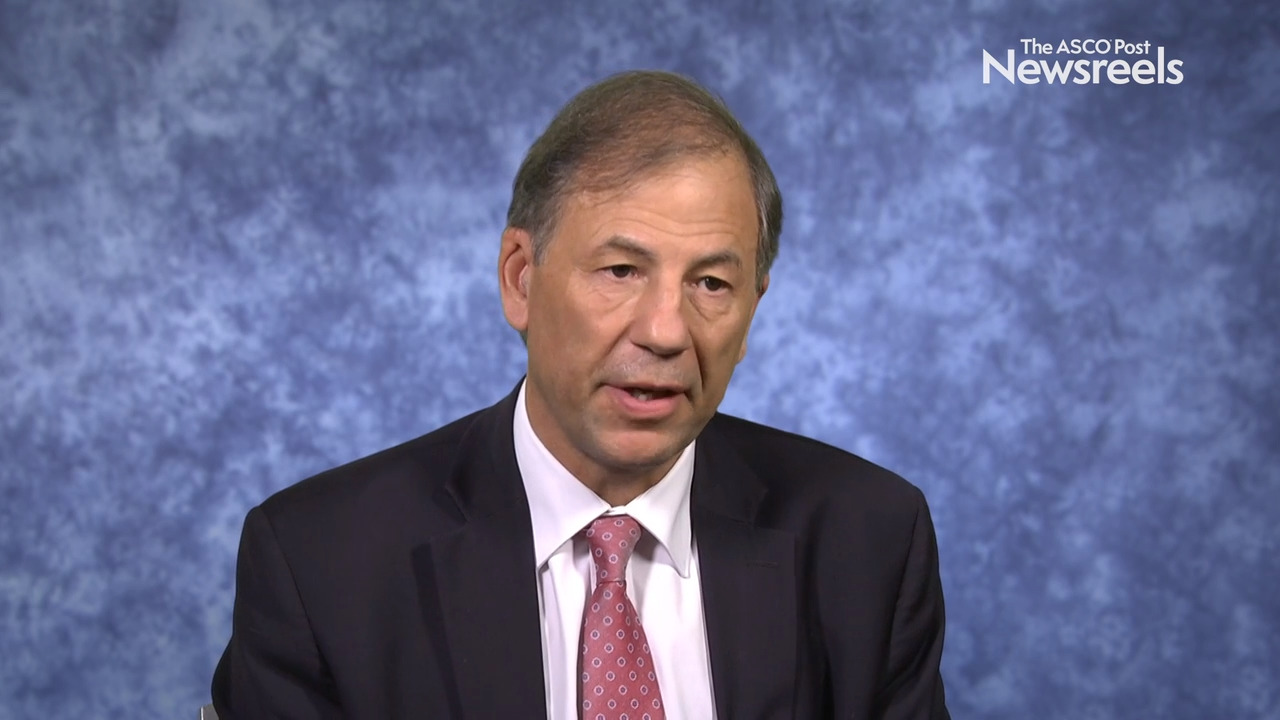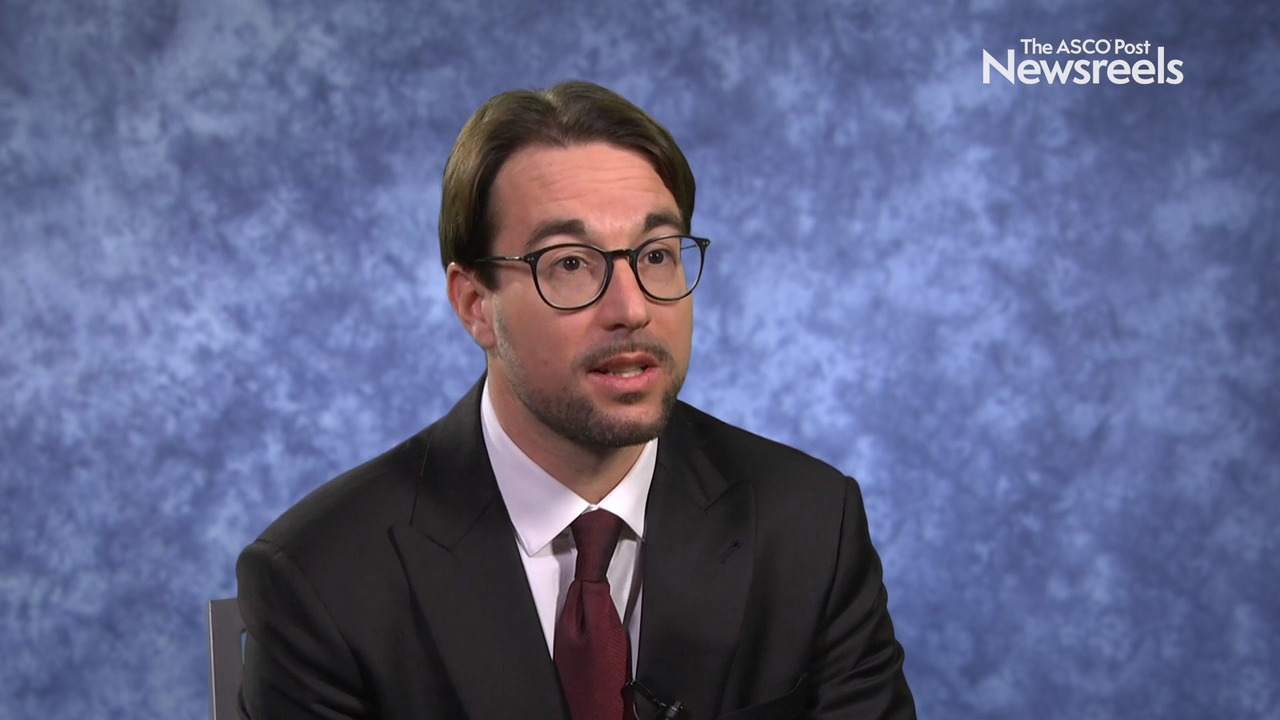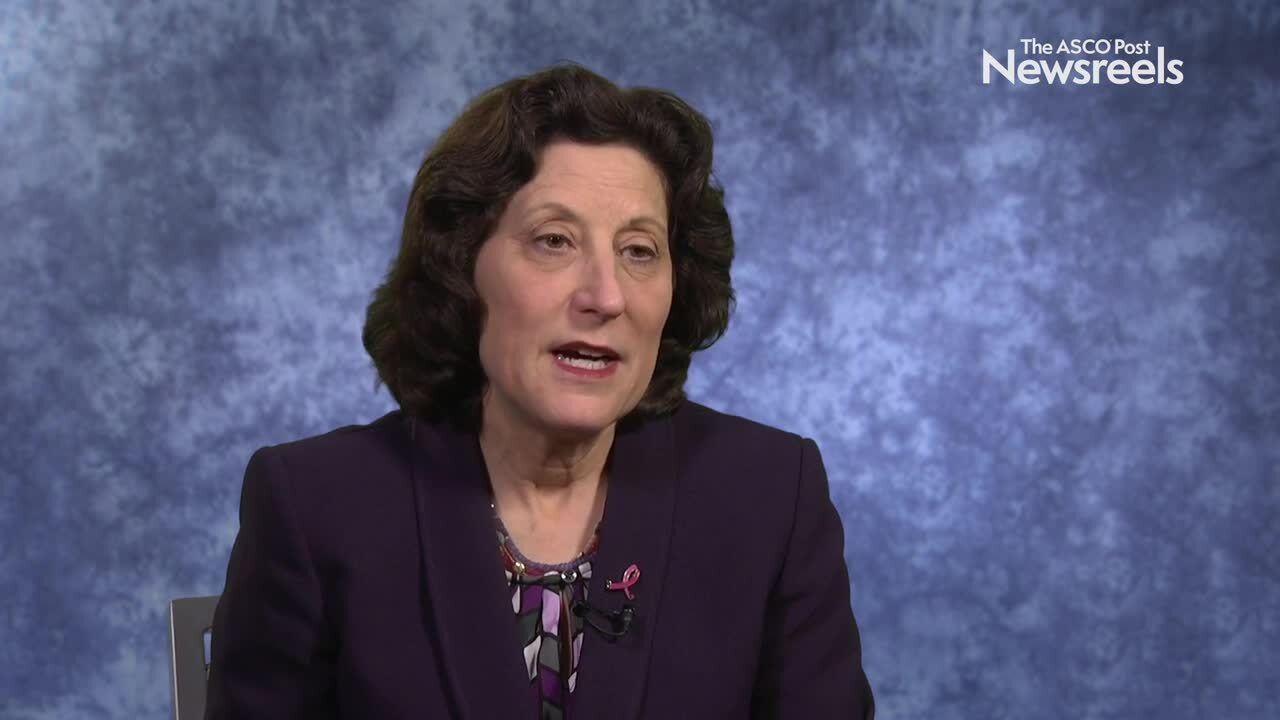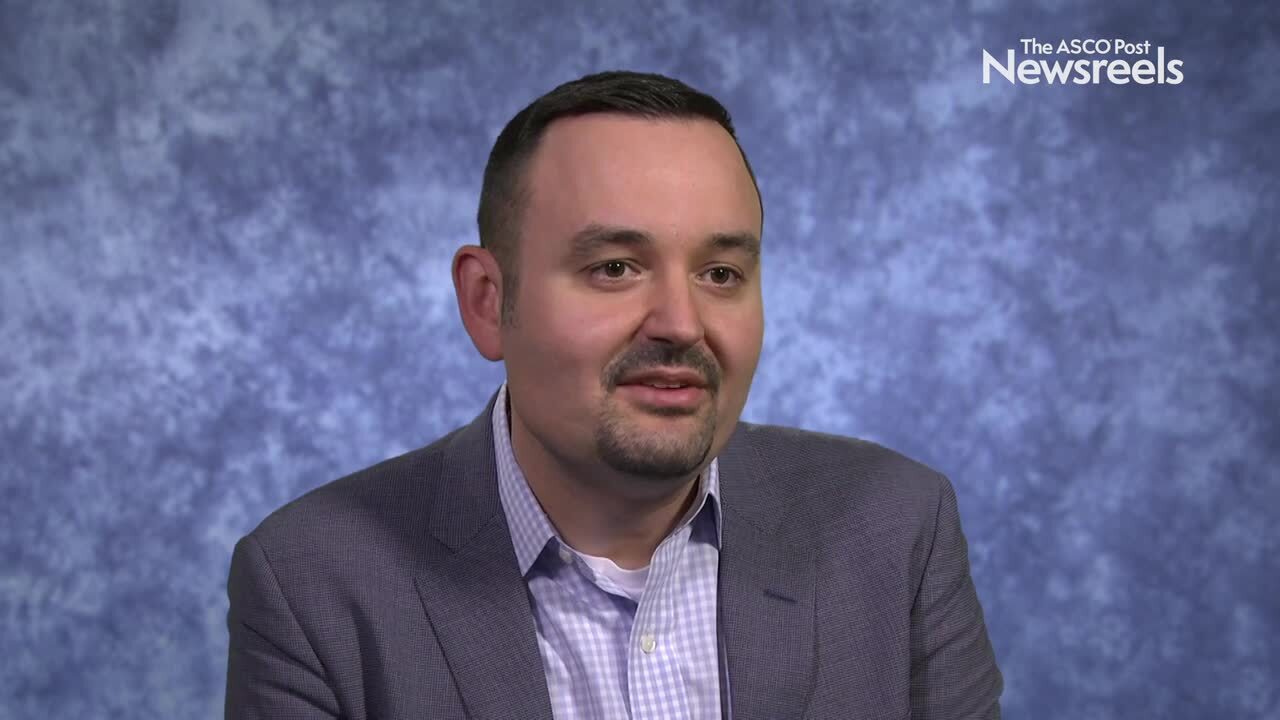Priyanka Sharma, MD, on Postoperative Treatment of Primary Breast Cancer: POTENT Trial
2019 San Antonio Breast Cancer Symposium
Priyanka Sharma, MD, of the University of Kansas Medical Center, reviews new phase III data on adding oral fluoropyrimidine to adjuvant endocrine therapy, the current standard of care, in the setting of hormone receptor–positive, HER2-negative primary breast cancer (Abstract GS1-09).
Ivana Sestak, PhD, of Queen Mary University of London and the Centre for Cancer Prevention, discusses study findings that confirm the prognostic ability of the Clinical Treatment Score at 5 years (CTS5) for late distant recurrence, specifically for patients older than 50 years and/or for those deemed to have intermediate- or high-risk hormone receptor–positive, HER2-negative, node-negative breast cancer. The CTS5 is less prognostic in women younger than 50 who received 5 years of endocrine therapy alone (Abstract GS4-03).
Terry P. Mamounas, MD, MPH, of Orlando Health UF Health Cancer Center, discusses 10-year results from NRG Oncology/NSABP B-42, which showed that, for postmenopausal women with hormone receptor–positive breast cancer who have completed previous adjuvant therapy with an aromatase inhibitor or with tamoxifen followed by an aromatase inhibitor, extended treatment with letrozole improved disease-free survival (Abstract GS4-01).
Icro Meattini, MD, of the University of Florence, discusses study findings that showed the less-invasive partial-breast irradiation using intensity-modulated radiotherapy after surgery may be an acceptable choice for patients with early breast cancer, as it is cost-effective, safe, and efficacious when compared with whole-breast irradiation (Abstract GS4-06).
Hope S. Rugo, MD, of the University of California San Francisco Comprehensive Cancer Center, discusses a retrospective analysis on the effectiveness of the VENTANA PD-L1 SP142 assay, the Dako 22C3 assay, and the VENTANA SP263 assay as predictors of response to atezolizumab plus nab-paclitaxel in patients with metastatic triple-negative breast cancer (Abstract PD1-07).
Milan Radovich, PhD, of Indiana University School of Medicine, discusses trial findings that show patients with triple-negative breast cancer who are at high risk of relapse after receiving preoperative chemotherapy can be risk-stratified based on the presence of minimal residual disease as determined by circulating tumor DNA and circulating tumor cells (Abstract GS5-02).
